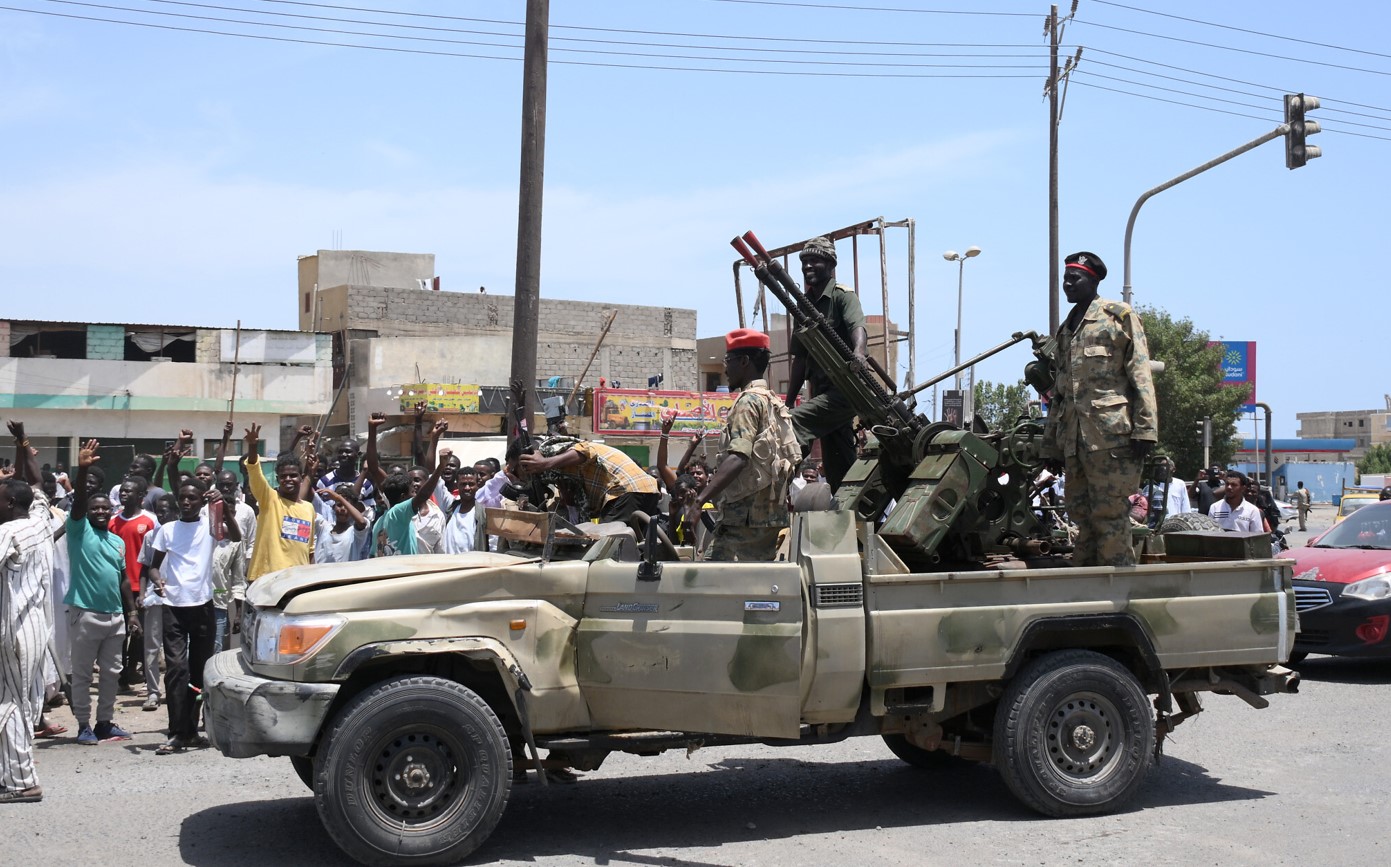Speculations rife after Sudan denies getting military aid from Iran

The revival of diplomatic relations between Sudan and Iran has ignited speculation about potential ramifications on regional military dynamics.
Sudan has dismissed reports that the country received military aid from Iran amid the civil war and the escalating power struggle between the Sudanese army and paramilitary wing, Rapid Support Forces (RSF).
The allegations were refuted by Lieutenant General Ibrahim Jaber, a member of Sudan's Sovereign Council, and Foreign Minister Ali Al-Sadiq.
More To Read
- UN Secretary-General condemns ‘horrific’ drone strike on peacekeepers in Sudan
- Nine dead, 17 injured in RSF drone strike on Sudan’s Dilling military hospital
- Sudan war: Aid teams say deal struck to reach stricken El Fasher
- UK sanctions Sudan’s RSF commanders over atrocities amid ongoing conflict
- Maternal and newborn health in crisis as millions born in conflict zones, Save the Children warns
- South Sudan deploys forces to secure Heglig oil field after Sudan RSF capture
However, the revival of diplomatic relations between Sudan and Iran has ignited speculation about their future trajectory and potential ramifications on regional military dynamics, particularly in light of the clashes.
In an interview with Sudan Tribune, Lt. General Ibrahim Jaber, who oversees international cooperation for the Sudanese army, noted the significance of transparent communication and shared interests in international relations.
He rebuffed claims of exploiting the relationship with Iran for political advantage, as witnessed during the previous regime. He pointed out that most Gulf nations maintain diplomatic ties with Iran, implying that severed relations are an exception.
"Our engagement with Iran will not impede our normalization with Israel, a move pioneered by Sudan," he said.
He reiterated that "Sudan formulates its foreign policy and international relations based on the best interests of its populace. We will pursue normalisation when it proves advantageous and abstain from it otherwise."
Similarly, Sudanese Foreign Minister Ali Al-Sadiq rejected assertions of receiving military assistance from Iran in a separate statement to Sudan Tribune.
He clarified that restoring ties with Iran does not target any particular country, regional, or international power.
Al-Sadiq questioned the double standards applied to Sudan and Saudi Arabia's relationship with Iran, contending that Sudan has merely reinstated pre-existing ties and dismissing talk of Iranian weaponry as baseless speculation.
He confirmed the absence of any agreements regarding military aid with Iran, stating "At present, our agreement solely pertains to the reopening of embassies."
Several Arab nations, including Qatar, Saudi Arabia, Bahrain, and the UAE, maintain positive relations with Iran.
Combat Drones
Recent reports of Iran supplying drones to Sudan have already begun to influence the trajectory of the nation's devastating civil war that is entering its second year.
Military experts who have observed the fighting from the ground have suggested these combat drones recently acquired from Tehran have helped tilt the balance against the RSF, which controls most of the country.
Iran is reported to have supplied Sudan's army with the Mohajer-6 attack drones, which have sophisticated air-to-ground attack capabilities.
The drones, seen in Iraq and Ukraine and widely used on the Sudanese battlefield, are capable of reconnaissance, surveillance, and target acquisition, as well as air-to-ground strikes.
This Iranian drone's maximum speed of 200 km/h (124 mph) and impressive endurance of 12 hours, which allows it to cover vast areas, are its distinguishing attributes.
Top Stories Today















































